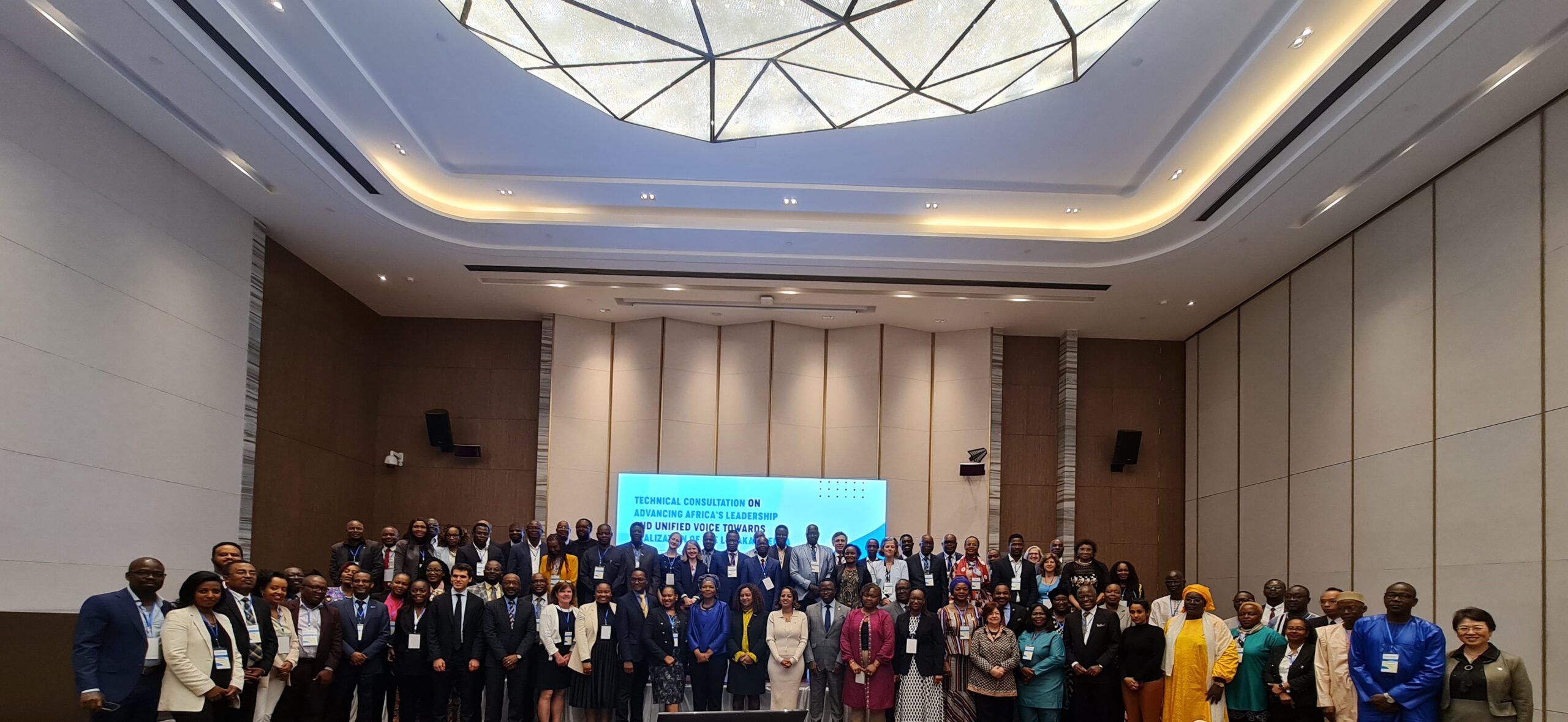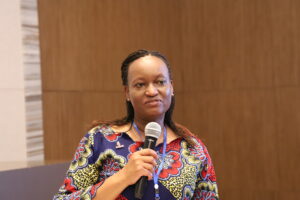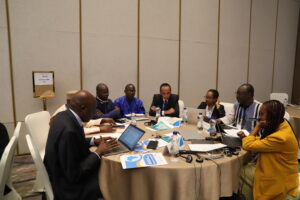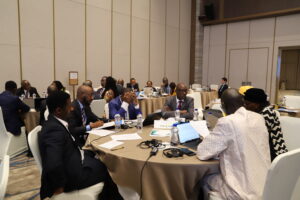Towards Collective Action: Africa’s Path to Implementing the Lusaka Agenda
- June 27, 2024
- Africa Leaders Meeting (ALM) Declaration / African Constituency Bureau / Lusaka Agenda
- By The Bureau
- Read in French

What does it take to transform health outcomes across an entire continent? The African region’s proactive stance in realizing the Lusaka Agenda provides the answer. The Africa Regional Roadmap on the Lusaka agenda, set to be unveiled at the WHO Africa Region’s Regional Committee meeting in August 2024, underscores the power of collective action. It’s a clarion call for governments, regional bodies, Global Health Initiatives (GHIs), development partners, Civil Society Organizations (CSOs), and the learning community to realize the vision of the Lusaka agenda, driving global health transformation.
Read More here
Navigating Global Health Transformations: The Lusaka Agenda and Its Imperatives

Organized by esteemed entities including WHO Afro, the African Constituency Bureau for the Global Fund, Africa CDC, Wellcome Trust, The Global Fund, Gavi, and The Global Financing Facility (GFF), the “Technical Consultation on Advancing African Leadership and Unified Voice towards the Realization of the Lusaka Agenda” in Addis Ababa on June 12-13, 2024, was a pivotal platform for deepening discussions on the post-Lusaka Agenda. By fostering collaboration and establishing clear metrics for progress and accountability, the path towards a unified and resilient health future for Africa is being charted.
Insights and Discussions: Key Shifts and Near-Term Priorities

During the two-day technical consultation, participants engaged in comprehensive discussions on the five key shifts outlined in the Lusaka Agenda, reflecting on their implications and identifying near-term priorities for actionable progress:
- Strengthening Primary Health Care (PHC): Recognized as the cornerstone of health security and pandemic preparedness, investment in PHC is crucial. The discussions highlighted the need for integrated health system strengthening (HSS) and the development of comprehensive PHC/HSS metrics to ensure robust monitoring and evaluation.
- Catalyzing Sustainable, Domestically-Financed Health Services: Building on the historic Abuja Declaration, participants explored innovative domestic resource mobilization (DRM) strategies to achieve sustainable health financing. Leveraging platforms like the Africa Leadership Meeting for Health Financing was identified as essential for fostering long-term investments in health.
- Strengthening Joint Approaches for Health Equity: Commitment to human rights and addressing health disparities were reaffirmed. The discussions focused on social, political, and structural determinants of health to ensure equitable health outcomes for all populations.
- Enhancing Strategic and Operational Coherence: The need for a unified Program Management Unit (PMU) and joint implementation teams was emphasized to streamline GHI efforts within countries. Developing an alignment and coordination maturity matrix was seen as vital for assessing baseline information and tracking progress.
- Coordinating R&D and Regional Manufacturing: Recognizing Africa’s potential in pharmaceutical production, participants stressed the importance of stronger coordination to address gaps in demand predictability, affordability, and financing. Ensuring quotas for African-produced health products on procurement platforms and supporting regional R&D efforts were key proposals.
Elevating Accountability and Governance

Governance and accountability emerged as critical themes, with participants underscoring the importance of robust, transparent, and inclusive leadership to drive the implementation of the Lusaka Agenda. Key near-term priorities included:
- Robust and Inclusive Governance: Effective governance systems are essential for coordinating and aligning global health efforts. Transparent and inclusive leadership was deemed crucial for driving the Lusaka Agenda forward.
- Monitoring and Impact Assessment: Development partners, including the WHO and various stakeholders such as GHIs, regional bodies, countries, and CSOs, are collaborating to create normative guidance on key outcomes and impact measurements. They are also developing PHC and HSS metrics to inform resource allocation and are implementing a research agenda on PHC reorientation..
- Alignment with Government Systems: Encouraging GHIs to align their work with national systems, budgets, and monitoring plans was highlighted as a key step towards ensuring sustainable health financing.
- Streamlining Grant Processes: Simplified grant application and disbursement procedures, along with longer grant durations, were proposed to reduce administrative burdens and enhance efficiency.
- Transparency in Financial Flows: Emphasizing the need for sustainable finance mechanisms, participants called for greater transparency in external financial flows and the establishment of legal frameworks to support long-term transitions.
Pathfinder Countries and Accountability Framework
The selection criteria and significance of Pathfinder countries that will advance the Lusaka Agenda with GHIs, implement the key shifts and near-term priorities, and draw lessons to be applied to other countries were discussed, emphasizing regional balance and leadership commitment. Countries like South Sudan, Ghana, and Malawi expressed interest in playing pivotal roles. Furthermore, establishing an accountability framework was emphasized, focusing on priorities such as domestic financing, policy harmonization, resilient health systems, and enhanced access to health services. Transparency and efficient resource utilization emerged as key pillars in ensuring accountability within the health sector.
Next Steps: Towards the WHO Africa Regional Committee Meeting

As Africa prepares to present the Africa Regional Roadmap at the WHO Africa Region’s Regional Committee meeting in Brazzaville, Congo, in August 2024, the focus remains on fostering collaborative efforts among all stakeholders. The roadmap aims to unify the continent’s voice and drive coherent, strategic actions in global health.
By leveraging existing platforms such as the African Leaders Meeting (ALM) Declaration on Health Financing, which “emerged as a transformative force in response to the urgent need for sustainable health financing’’ establishing clear metrics, and ensuring accountability, Africa is poised to lead a unified and resilient health future.
The commitment to the Lusaka Agenda and the proactive approach demonstrated in Addis Ababa highlight the continent’s readiness to drive global health transformations through unified leadership and strategic collaboration.
Armelle Nyobe and Fassika Alemayehu


